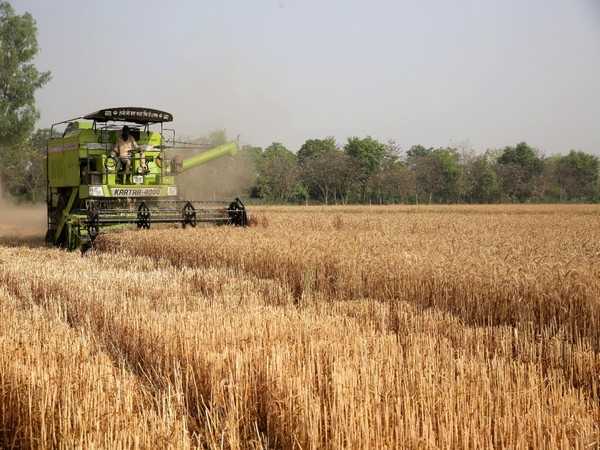
New York: The US and several other countries on Thursday urged members of the UN to keep their "food and agricultural markets" open and "to avoid unjustified restrictive measures, such as export bans on food or fertilizer".
In a statement issued the after ministerial meeting 'Roadmap for Global Food Security-Call to Action', they called on all UN Member States to work together to mitigate the mid-term and long-term impact of recent shocks to global agriculture and food systems.
"We must collectively mitigate fertilizer shortages and the subsequent threat to food production, increase investments in agricultural capacity and resilience, buffer those in vulnerable situations from impacts to their food security, nutrition and well-being, and sustain high-level global political engagement on these critical issues," the statement said.
The 'Global Food Security-Call to Action' Ministerial was chaired by US Secretary of State Antony Blinken with a focus on strengthening global food security, nutrition, and resilience.
The seven-point 'actions' in the statement called for UN Member States with available resources to make new, additive financial donations to key humanitarian organisations providing immediate life-saving humanitarian assistance.
"All UN Member States to keep their food and agricultural markets open and to avoid unjustified restrictive measures, such as export bans on food or fertilizer, which increase market volatility and threaten food security and nutrition at a global scale, especially among those in vulnerable situations already experiencing increased poverty, hunger, and malnutrition, and call on all members to ensure safe maritime transportation in the Black Sea," the statement said.
The statement noted with with grave concern that the newly-released 2022 Global Report on Food Crises indicates that the number of people facing acute food insecurity greatly increased from 135 million in 2019 to 193 million in 2021 in the 53 countries most in need of assistance, and that nearly 40 million people across 36 countries experienced emergency levels of acute food insecurity, just one step away from famine.
"Driven by conflicts, extreme climate-related events, such as historic multi-season droughts and floods; economic shocks, including the impacts of the COVID-19 pandemic on livelihoods, incomes, and food prices; and a multitude of other threats to human, animal and crop health, the food security outlook for 2022 and beyond is grim," the statement said.
"This is compounded by Russia's invasion of Ukraine, which is further exacerbating this already dire situation," it added.
Other 'actions' measures proposed in the statement included a request to countries with available resources to temporarily increase fertilizer production, increase efforts to support the sustainable transformation of agriculture and food systems as well as requests to all countries to increase their investments in research to develop and implement science-based and climate-resilient agricultural innovations.
"We note the many commitments made today in response to this Roadmap for Global Food Security-Call to Action and urge the mobilization of additional resources to implement this roadmap on an urgent basis," the statement said.
The countries which have endorsed the statement include Australia, Canada, France, Germany, Indonesia, Norway, the UK, Saudi Arabia and UAE.
India, represented at the conference by MoS Muraleedharan, did not endorse the statement which was released by the US Department of State.
During his speech at the Ministerial, Muraleedharan expressed his concern over global food insecurity and noted that according to a report by Global Report on Food Crises, 139 million people had suffered across the world from conflict-induced acute food insecurity. He stated that this situation is a severe issue and it can't be neglected.
Muraleedharan, who on Thursday also participated at the United Nations Security Council (UNSC) open debate on 'Maintenance of International Peace and Security: Conflict and Food Security', said that the Indian government took the measure to impose restriction on export of wheat as it "recognized the sudden spike in global prices of wheat which put our food security and those of our neighbours and other vulnerable countries at risk."